United Against Inhumanity (UAI) launched a major campaign, in March 2022, to reverse policies imposed by the US and some European governments, to freeze the sovereign external reserves of Da Afghanistan Bank (DAB), the country’s central bank.
These assets belong to the Afghan people who had no say in the return of the Taliban to power in August 2021. The arbitrary seizure of these assets was, and is, a key factor in the near collapse of the Afghan economy and its banking sector. A critical role of central banks everywhere is price stability and curbing inflation. When this does not happen, invariably, the poor suffer the most.
The consequences of policies that hobble the DAB include catastrophic levels of poverty and hunger with some two-thirds of the population now dependent on humanitarian support for survival. Unprecedented levels of deprivation have increased indebtedness, displacement and the troubling use of negative coping mechanisms whereby young girls are exchanged in marriage so that other children can be fed.
UAI calls for the immediate, internationally monitored, and phased release of some US$9.1 billion that belong to the Afghan people.
UAI’s Statements on Afghanistan
15th August 2024
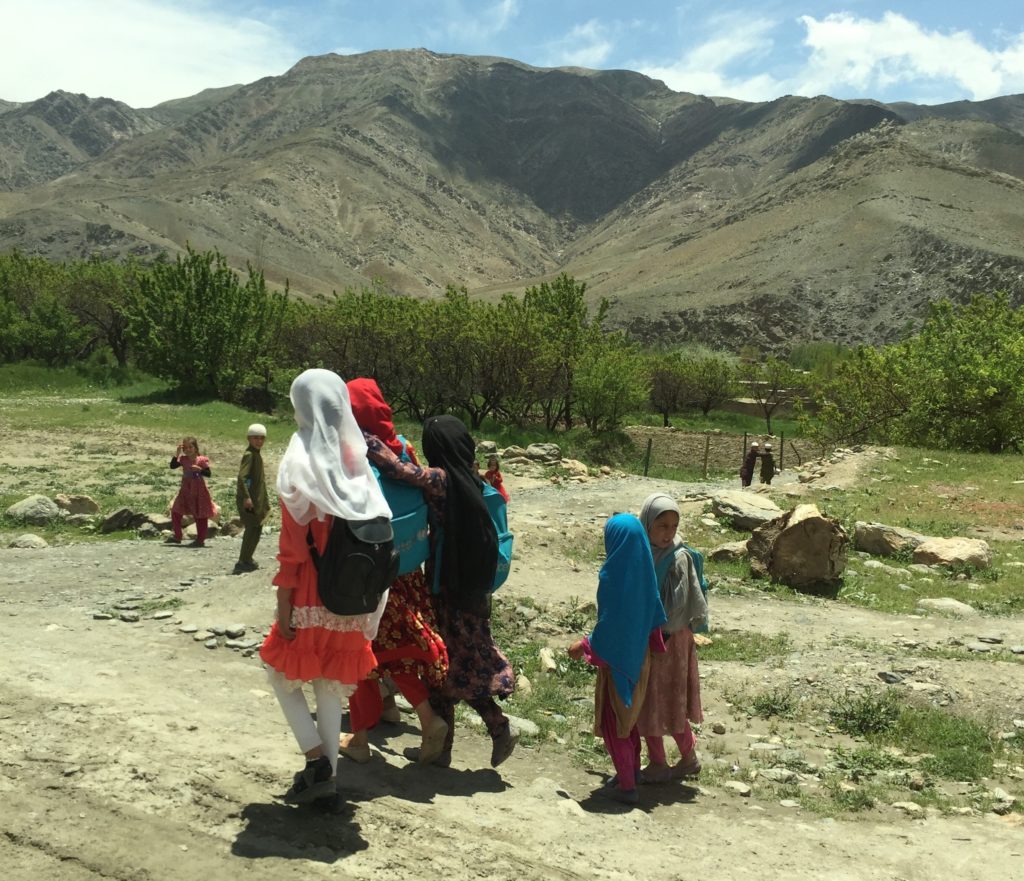
Frozen Funds Afghanistan Campaign Update: 2023 – March 2024
27th March 2024 UAI Update
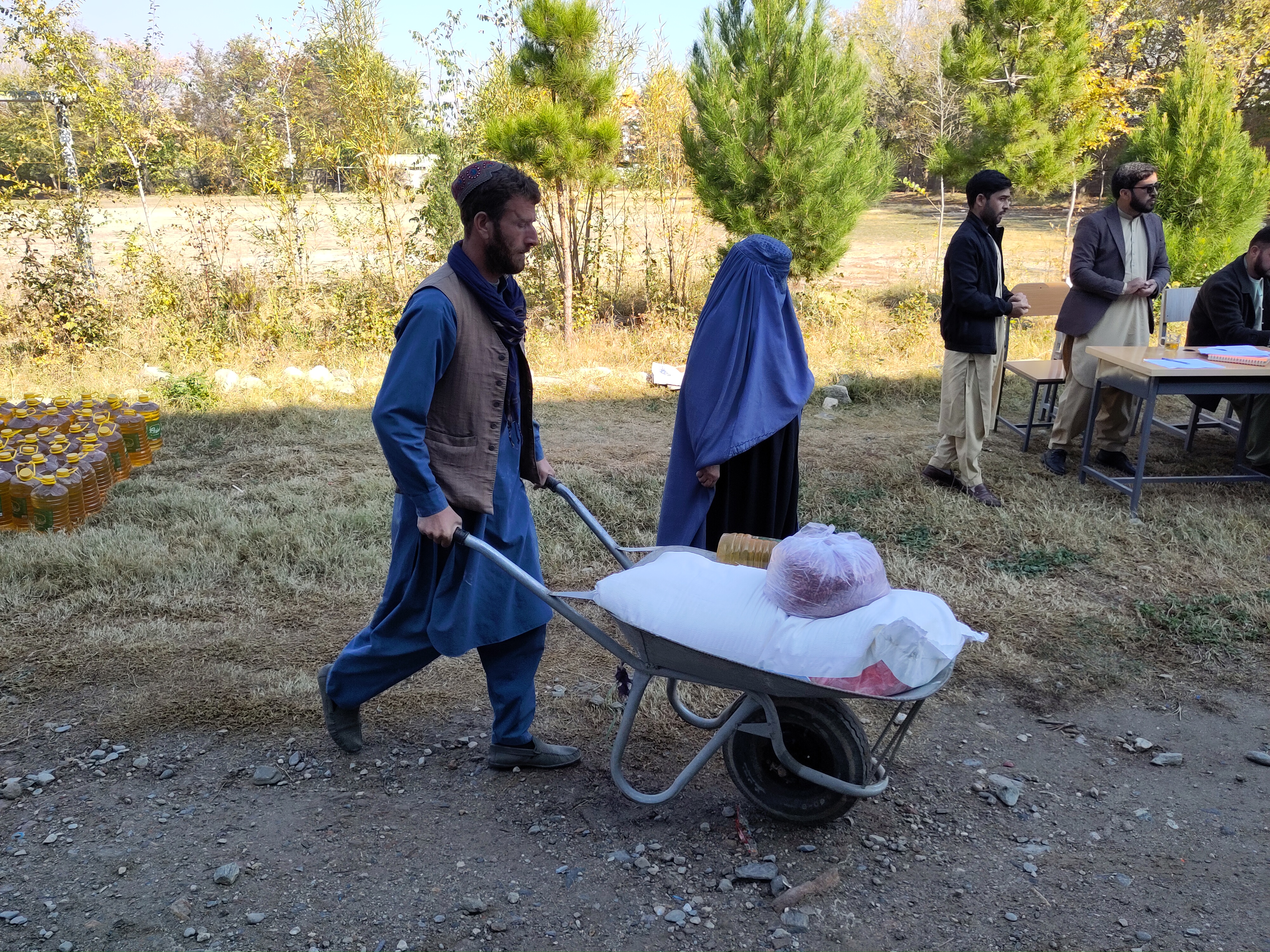
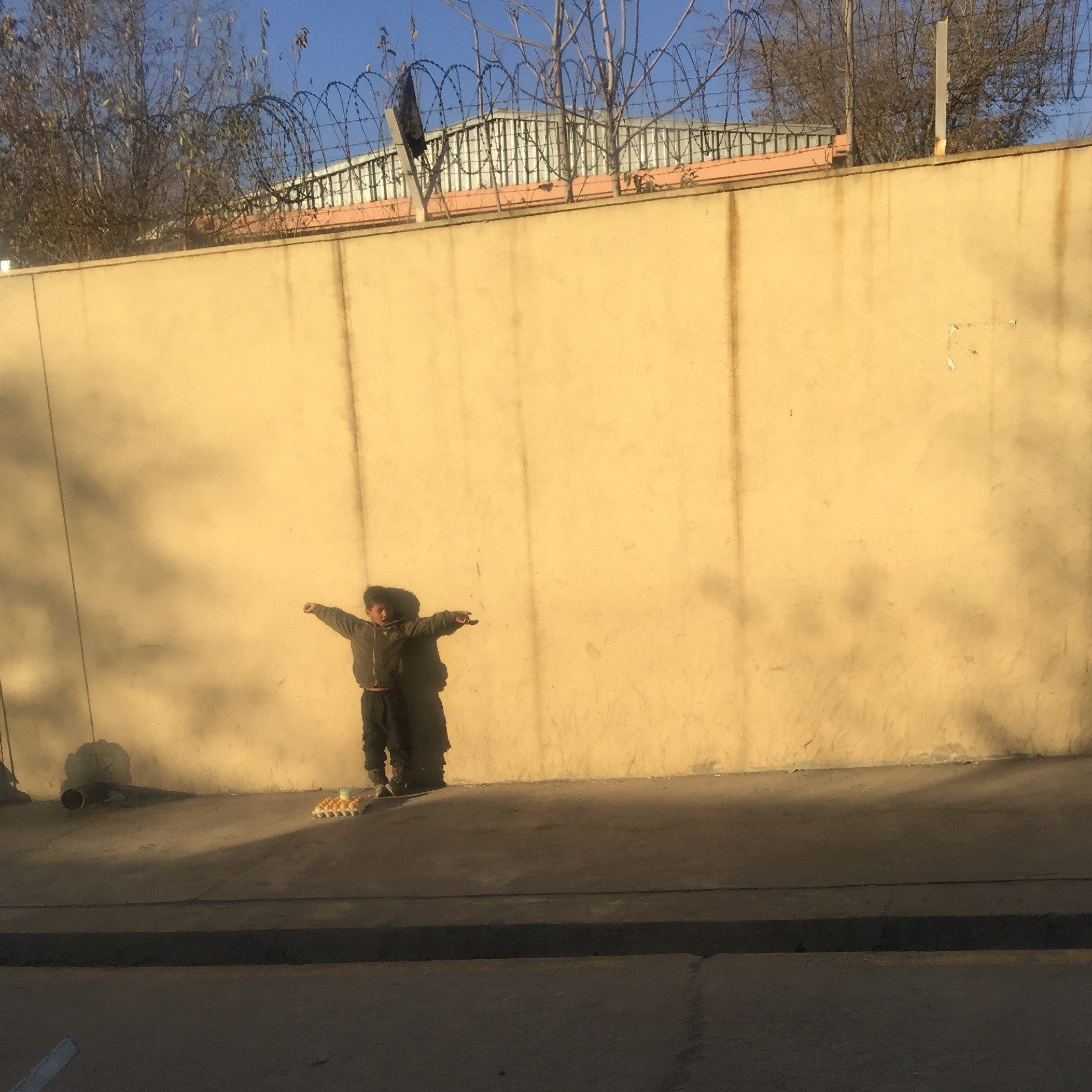
Still No Recapitalization of Afghanistan’s Central Bank as Destitution, Deprivation, Displacement wreck Afghan Lives
4th March 2024 UAI Statement
Bin the rhetoric: Recapitalize Afghanistan’s Central Bank
26th June 2023 UAI Statement
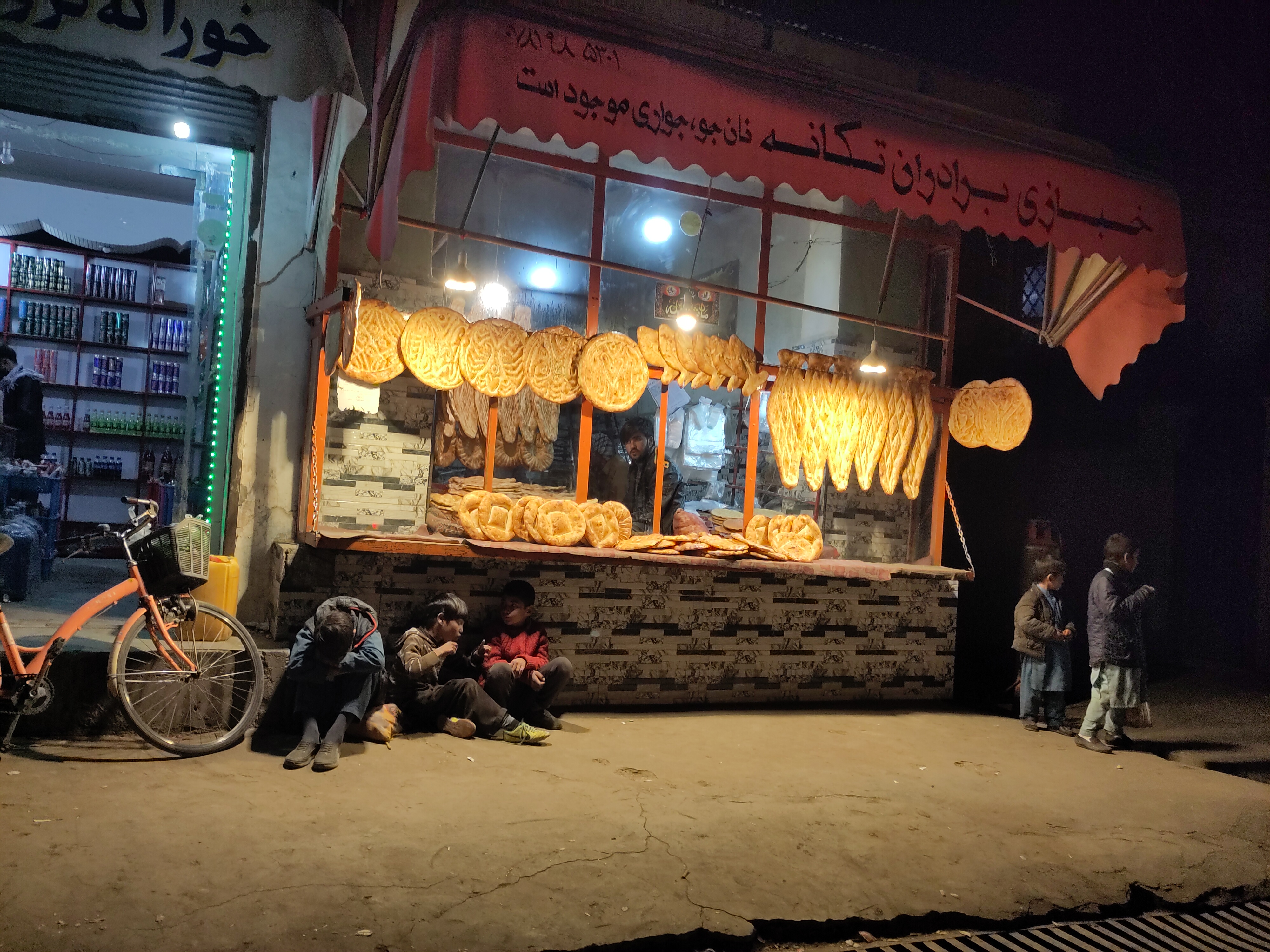
NGO letter on Afghanistan to World Bank
NGOs advocate for the formal engagement of the World Bank in Afghanistan to help stabilize the economy and facilitate re-investment in the country’s financial sector.
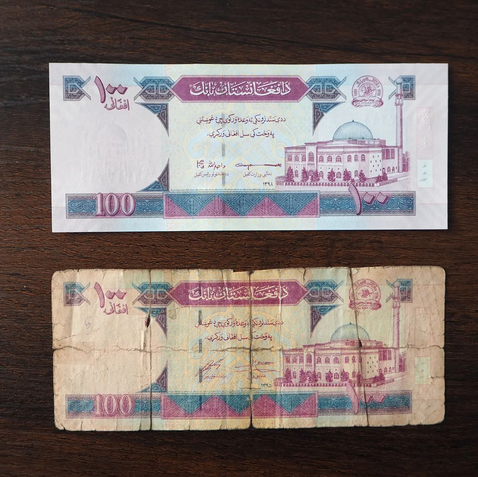
Amid deepening poverty, hunger, and economic crisis… A glimmer of hope for Afghans
15th November 2022 UAI Statement
Release Afghan frozen funds now! Afghans need a functioning economy and banking system
4th October 2022 UAI Statement
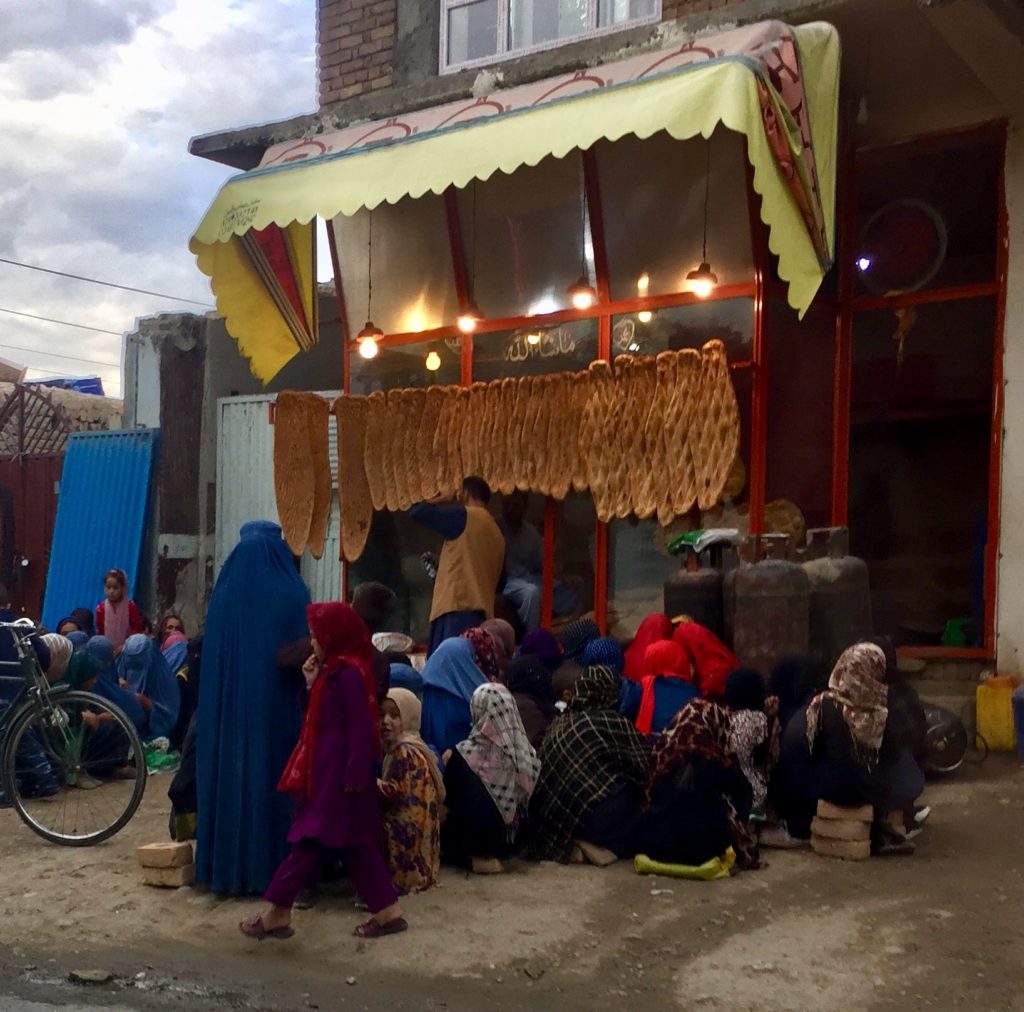
A year of deepening crisis and avoidable suffering
24th August 2022 UAI Statement.
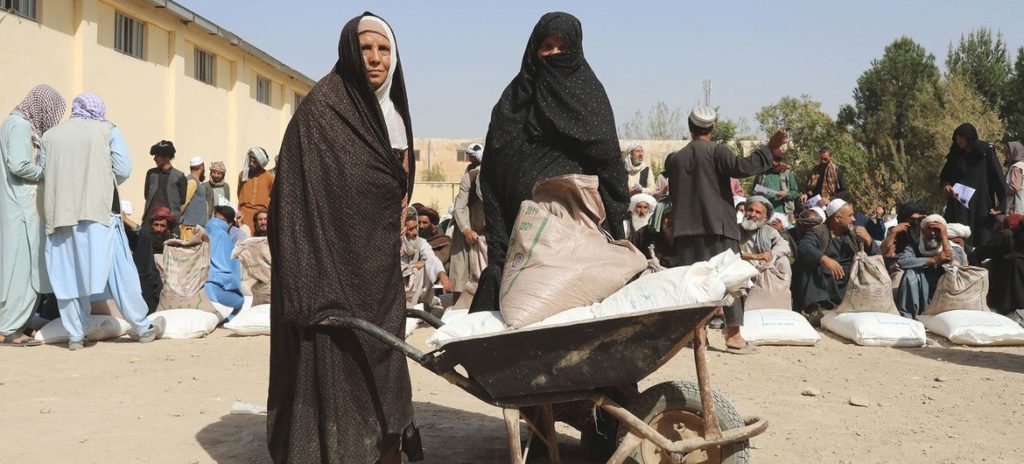
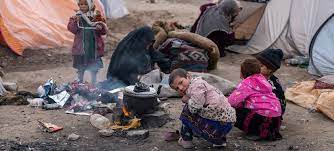
May 2022 Campaign Update
March 2022 Press Releases
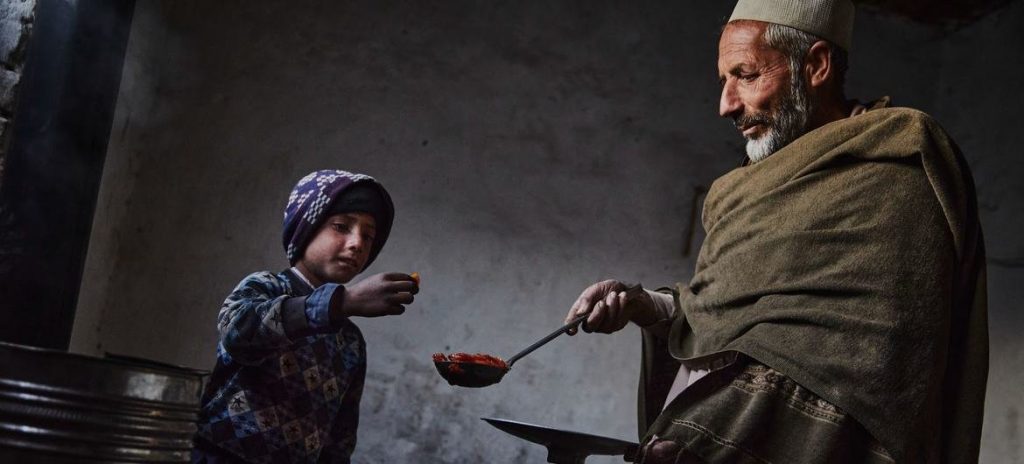
Campaign Letter to Western Leaders (7th March 2022)
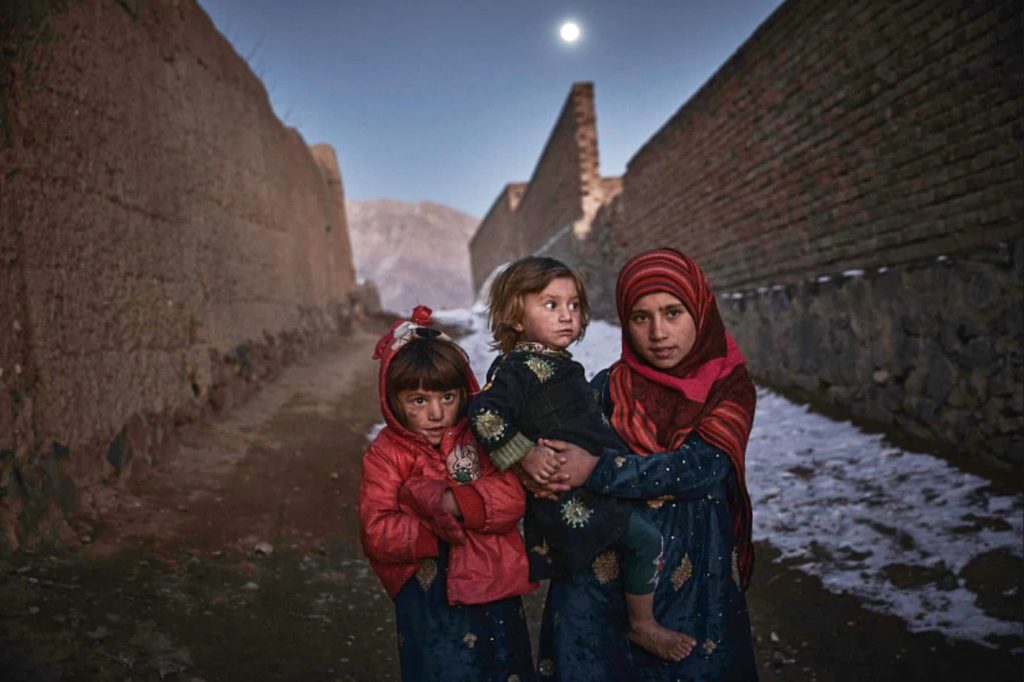
UAI Statement (7th March 2022)
Frozen assets, Desperate Afghans – Immediate Action is needed

“Pope Francis: A Crusade Against Inhumanity”, a Reflection by Salem Mezhoud
“No one can remain excluded because of his or her place of birth, much less because of privileges enjoyed by others who were born in lands of greater opportunity. The limits and borders of individual states cannot stand in the way of this.” He had been ill for several weeks and many thought he would…
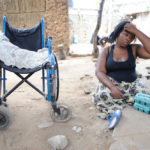
Back to the “Killing Fields”!, by Jean-Baptiste Richardier
Feeling threatened by the expansionism of their powerful neighbor – which is using antipersonnel mines on a large scale in its war against Ukraine – Poland, Finland, Lithuania, Latvia, and Estonia have announced their disastrous plan to turn their back on the Ottawa Treaty. Their withdrawal would be a repudiation of the promise made to their victims, and an admission of weakness. As warfare surges in an increasingly lawless…
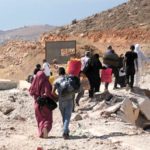
“Refugee Repatriation: a right or a ruse?”, by Pilar Aguilar.
Refugee repatriation is often championed as a solution that honours the right of return, a fundamental principle enshrined in international law. But how closely does this principle align with the realities faced by refugees and returnees? Are their rights, or is repatriation increasingly becoming a tool of political convenience? Voluntary repatriation, in theory, must always…
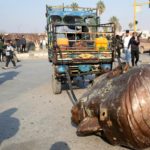
“Syria after Assad: How should the UN and its member states respond?” by Martin Barber
In 2024, 233,000 people were killed in wars, a 30 percent increase from 2023. The trend seemed inexorable. Political apathy in the face of relentless human suffering fuelled public disgust with government leaders. But then, on 8 December, came a rare piece of apparently good news. One of the world’s most brutal dictators, Bashar al-Assad…
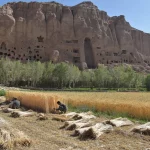
Between a rock and a hard place: Afghans suffer the consequences of economic deprivation and Isolation – by Dr Florence Rigal and Manuel Patrouillard
“Between a rock and a hard place”: Afghans suffer the consequences of economic deprivation and Isolation – by Dr Florence Rigal and Manuel Patrouillard. Three years after the return of the Taliban and the gradual exclusion of women and girls from education, public spaces and employment with humanitarian organisations, the de facto government formed by…
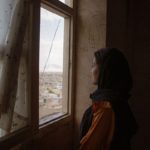
Why won’t the West listen to Afghan women? – by Andrea Vejtorp-Birch
Since the Taliban seized power in August 2021, most Western democracies, led in large part by the US, have pursued a policy of disengagement while humanitarian and development aid has dwindled. Yet, recently there have been increasing calls to start engaging more with the Taliban, not least from women like Nobel Peace Prize nominee, Mahbouba…

The Afghan Fund: the Limits of Sovereign Immunity & Recognition Law – By Matei Alexianu, Ali Hakim
The U.S. is holding $3.5 billion of Afghan central bank assets in a trust fund—potentially violating bedrock international legal principles. In an article originally published on Lawfare, the authors detail the international legal principles that are undermined by the creation of the “Afghan Fund”.
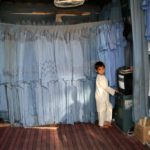
Afghanistan: Two Years after the Return of the Taliban – By Giuliano Battiston
Two years after the capture of Kabul, the Emirate is strong but crucial issues, including internal repression, affect its international legitimacy. A translated article originally by Giuliano Battiston, freelance journalist and researcher.
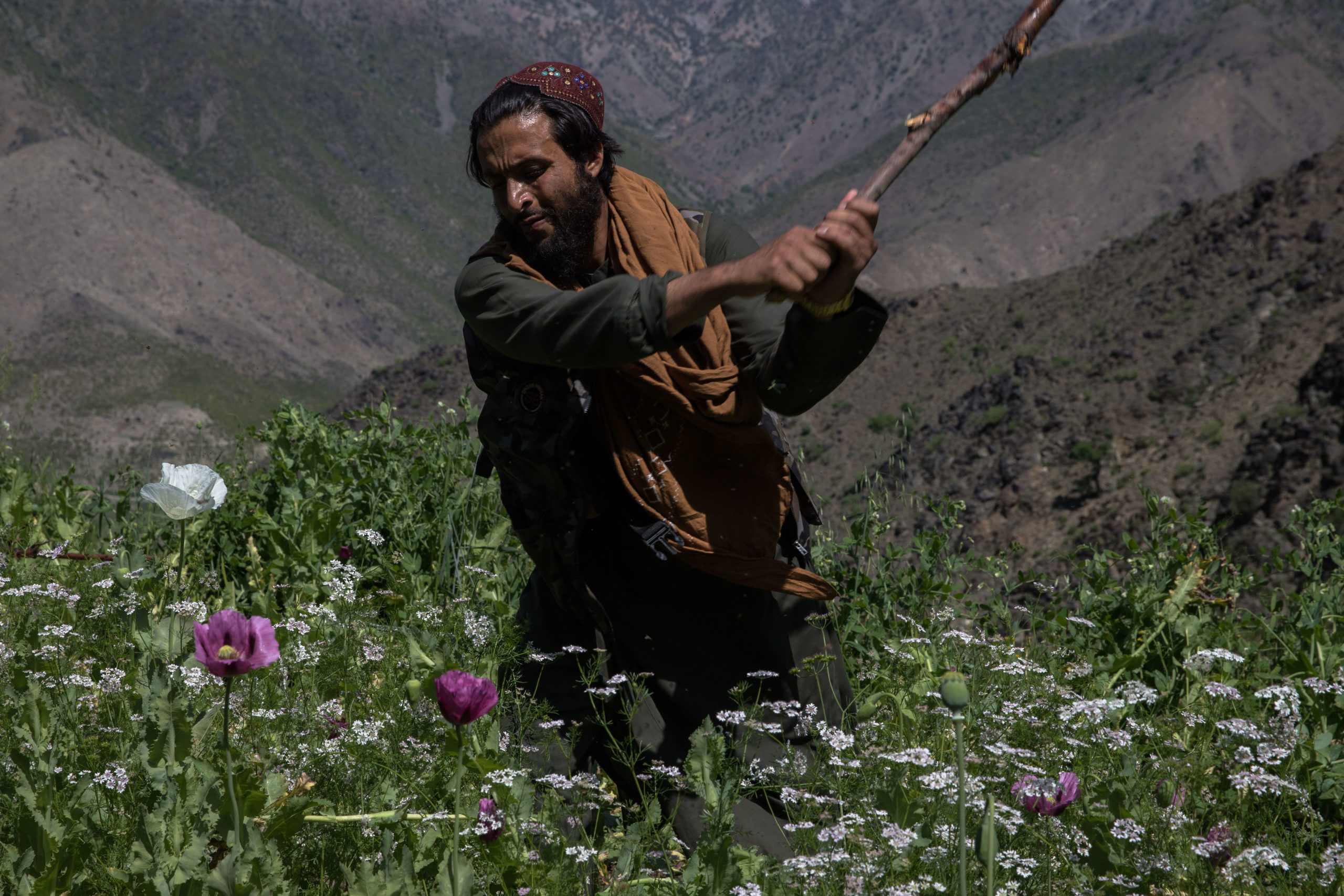
The eradication of poppy cultivation in Afghanistan, bis repetita – By Jean-François Cautain
The Taliban authorities are fighting against poppy cultivation in Afghanistan. Former EU Ambassador and UAI member, Jean-François Cautain, argues that the EU should seize the opportunity to fight against poppy cultivation by supporting farmers in their conversion to other crops.

Faced with the humanitarian crisis in Afghanistan, Europe must enable the economy to take off again – By Jean-François Cautain
Two years after the Taliban came to power, the people of Afghanistan are facing a dramatic situation. To help them, Europeans must stop modelling their policy on that of the United States in terms of military and security policy, argues Jean-François Cautain, former EU ambassador.

Engaging with the Taliban then and now: Lessons learned, lessons spurned? – Virtual round-table with Antonio Donini
This round-table was hosted by the Norwegian Centre for Humanitarian Studies, with an introductory speech by United Against Humanity’s International Executive Committee member, Antonio Donini who addressed key differences and similarities in engaging the Taliban in the past and today. Here is the video recording of the round-table, below which you can find the description of the event, including of each speaker. This information is provided by the organisers of the event, the Norwegian Centre for Humanitarian Studies.
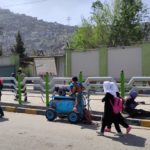
A Letter From Kabul – By Jean-François Cautain
I am writing from Kabul where I have been living for these past 11 months. I consider myself a friend of Afghanistan, a country full of contrasts that I know since 1986; all in all, I have lived here for a little over 12 years. My return to Afghanistan was motivated by the desire, which I share with my wife who runs a medical NGO in Kabul, to help the Afghan population that is once again hostage to a modern “Great Game”, bringing violence and misery.
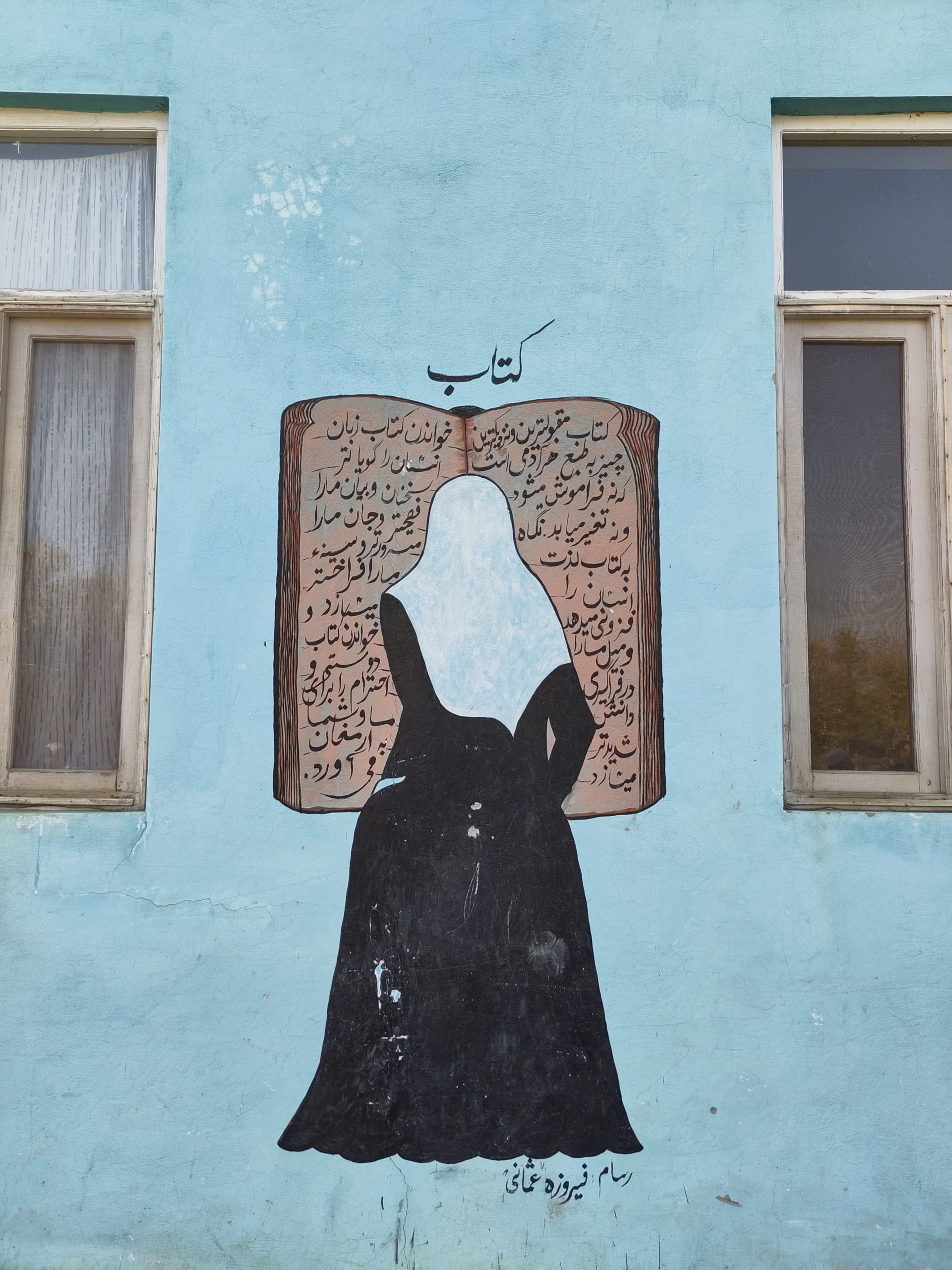
What Can We Do? – Newsletter April 2023
UAI’s April 2023 Newsletter covering news on Afghanistan, Myanmar, and the global Asylum system, amongst other items.
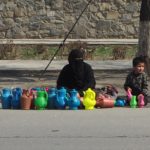
Afghanistan: Déjà vu all over again – By Norah Niland
This Blog reviews how humanitarian actors and others have reacted to misogynistic Taliban Edicts while highlighting insights from prior experience during the first Taliban Emirate (September 1996 – end 2001). It concludes with some suggestions based on prior and contemporary experience.
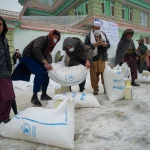
Sanctions on Afghanistan: Morally reprehensible and politically irresponsible – By Jean-François Cautain
There is a humanitarian crisis in Afghanistan and the US has the power to prevent it from worsening, it just chooses not to.
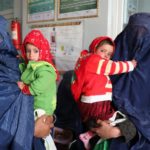
A Tale of Two Theocracies – by Anders Fänge
Western relations with Saudi Arabia are good. Afghanistan is a pariah. Why do Western governments treat them in such opposite ways?
Western disengagement will turn Afghanistan into a pariah state – By Hameed Hakimi and Mark Bowden
If Western governments and humanitarian actors abandon Afghans now, we will be condemning a whole nation to a grinding cycle of brutal poverty with unpredictable long-term consequences.
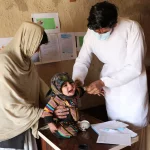
Unfreeze Afghan assets or more hungry children may die – By Kostas Moschoritis
As the first anniversary of the return of the Taliban to power approaches, a lot of commentary focuses on the humanitarian crisis and the brutal policies of the new regime. At the same time, it is important not to forget the collapse of the economy and banking system provoked by the decision of the US…
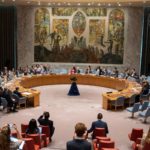
Syrian Cross-border Aid, Clashes in Ethiopia and a Shocking Report on the UK Special Forces in Afghanistan – Newsletter July 2022
This newsletter focuses on attempts to block aid to victims of war in Syria and Ethiopia and recent revelations about the conduct of UK Special Services Forces in Afghanistan
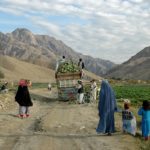
Taliban Policies are a Nightmare; ditto, Economic Warfare and Starvation – By Norah Niland
Ten months since the Biden Administration blocked the Afghan central bank from accessing the country’s external reserves – resources that belong to the people of Afghanistan – hunger stalks the land adding to the misery of citizens, including women and children, struggling with the consequences of Taliban rule.
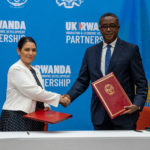
Deportations, Frozen Assets, and Better Communications – Newsletter May/June 2022
The newsletter comments on the deportation of refugees (newly arrived in the UK) to Rwanda and the continuing demand for funds to be released to Afghanistan
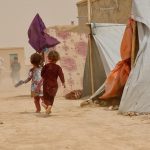
Afghanistan: Economic warfare displaces armed conflict as the core threat to survival – By Antonio Donini
Antonio Donini, co-founder and member of the International Executive Committee of UAI, wrote this article for Atlas of Wars. It was published on the Atlas of Wars website on the 30 April 2022. Afghanistan is regularly portrayed as “the graveyard of empires”. The British, Soviets and now the US-led coalition have tried and failed to impose their rule…
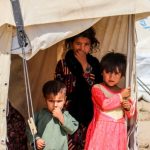
Afghanistan Campaign – Newsletter March 2022
9 March 2022 Dear Friends and Supporters Yesterday, UAI launched a major campaign to persuade President Biden , government leaders in Germany, Italy and the UK, and the Bank for International Settlements to release reserves belonging to the Afghan Central Bank. Assets with a total value of $9.1 billion are currently frozen in bank accounts…
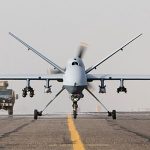
Three Vital Issues – January 2022 Newsletter
Dear Friends, The year 2022 begins with a catastrophe unfolding in Afghanistan, fragile signs of a possible conclusion to the conflict in Ethiopia, and renewed evidence of the horrendous treatment being meted out by many governments to people seeking refuge from war and persecution. Afghanistan The situation in Afghanistan only gets worse, with snow and…

Drone usage in the ‘Global War on Terror’: The need for Justice and Accountability for Afghans – By Kaitlin Kaye
Drones have become a prominent feature of the way the United States is waging counter-insurgency operations and has drastically altered the way in which combat is conducted. But with the advent of this controversial weapon & the increasing evidence of civilian harm resulting for it, multiple questions arise on what the effect is going to be on efforts for accountability and justice, particularly in Afghanistan, writes Kaitlin Kaye.
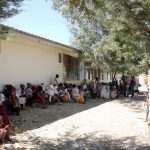
A Year of Challenging Inhumanity – December 2021 Newsletter
At the end of this year, what is the state of inhumanity for civilians in war and for refugees and asylum-seekers? This Newsletter reviews developments during the year in Ethiopia and Afghanistan and also highlights issues in Libya.
International military action in Afghanistan from 2001-2021 and UK asylum policy towards Afghans; an assessment – By Kaitlin Kaye
This is a synopsis, provided by the author, of a Masters dissertation, submitted at the University of Edinburgh. The research was carried out as part of a collaboration between the University and UAI.
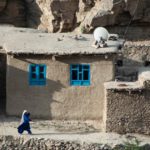
Backing the UN can help Afghans facing a tough winter – By Martin Barber and Mark Bowden
While attention is rightly focused on the appalling events at Kabul airport, the potentially catastrophic collapse of the Afghan economy requires immediate action by the international community. Mark Bowden and Martin Barber’s article for Chatham House explains how this can be done.
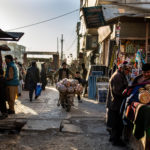
Afghanistan: Jaw-Jaw is the only Solution – By Antonio Donini and Norah Niland
Antonio Donini and Norah Niland, co-founders of UAI, write on Afghanistan for Global Geneva. Inclusive talks are the only option to end the surge in violence, civilian casualties, displacement and warfare in Afghanistan and build a political framework for a durable peace.
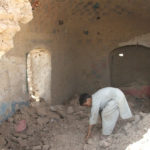
Afghanistan: human costs of war, impunity and indifference – By Norah Niland
A new and insightful USA Today report shines an overdue spotlight on the lack of accountability of US military personnel, and the hollowness of their repeated denials of the extent of the death and destruction inflicted on the village of Azizabad close to the Shindand air base, Herat province, western Afghanistan in August 2008. Brett Murphy of USA…
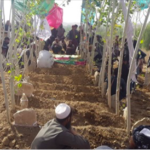
NY TIMES: One Afghan father’s search for answers after his entire family got wiped out by the US military
03 June 2019 – As aerial bombardments increase in Afghanistan, so do civilian casualties – read the story from The Bureau of Investigative Journalism of one Afghan father in search for answers after an airstrike gone wrong destroyed his house and killed his wife and seven children, alongside four young cousins. As the Bureau was able…
News about frozen Afghan funds
- Afghan Refugees Should Not Fear Repatriation, by Cheryl Benard, in National Interest. May, 2025.
- Recognition and the Taliban’s De Facto Future, by Scott R. Anderson, in Jens Vesterlund Mathiesen and David Vestenskov (Eds.), “Still Here – Understanding and Engaging with Afghanistan after August 2021” (pp. 194–211). SMS Press.
- “Stop Work!’ Aid and the Afghan economy after the halt to US Aid“, by Kate Clark, Afghanistan Analysts Network. February, 2025
- “Why Afghanistan’s reserves remain stuck in Switzerland“, by Ariane Lüthi , in Swissinfo. January 2025.
- “America, Afghanistan and the Price of Self-Delusion”, by John F. Sopko, US Special Inspector General for Afghanistan reconstruction. New York Times. January, 2025.
- “The world should not forget Afghanistan”, by Hujjatullah Zia A Kabul-based journalist. Al Jazeera. December, 2024.
- “The economy needs to be stabilised”, by Isolda Agazzi. Alliance Sud. October, 2024.
- “Three years after Taliban return, economic woes loom large“, by Pascale TROUILLAUD, Qubad WALI and Abdullah HASRAT, August 14, 2024.
- “Working with the Taliban wouldn’t legitimate their rule”, by Saad Mohseni. The Washington Post. August 2024.
- “Inside the Taliban’s Afghanistan”, by Jean-François and Sonia Cautain. The National Interest. August 2024.
- “Afghanistan Three Years after the Taliban Takeover“, by Graeme Smith. Crisis Group. August 2024.
- “Humanitarians scramble in Afghanistan three years after Taliban takeover”, by Paula Dupraz-Dobias. Geneva Solutions. August 2024.
- “Afghan Fathers Can Be Powerful Voices for Women’s Rights”, by Charli Carpenter. World Politics Review. July, 2024.
- “How to engage with the Taliban, if you have to”, by Dr Patricia Gossman Associate director for the Asia division of Human Rights Watch and Fereshta Abbasi Afghanistan Researcher at Human Rights Watch. The New Humanitarian. July, 2024.
- “UK should restore diplomatic presence to help Afghan women“, by Patrick Wintour. The Guardian. July 2024.
- “Third World Approaches to International Law & Economic Sanctions“, by Aslı Bâli, Ntina Tzouvala, & Chisato Kimura. This series of Features Essays is an extension of YJIL’s 2023 symposium, Third World Approaches to International Law (TWAIL) & Economic Sanctions. June 2024.
- “Successful failures: economic sanctions, humanitarianism, and the undoing of post-colonial sovereignty“, by Ntina Tzouvala (@ntinatzouvala) an Associate Professor at the ANU College of Law. June 2023.
- “To aid or not to aid: behind Afghanistan’s divided relief frontlines“, Paula Dupraz-Dobias”, Geneva Solutions. May 2024.
- “Rethinking talks with the Taliban Crisis Group”. Crisis Group. 2024.
- “Out of Sight, Afghans Are Going Hungry“. Human Rights Watch, March, 2024.
- “World Bank plans meeting on Afghanistan“, Salam Watandar. February 2024.
- “A Year on, Billions in Afghan Assets Linger in Switzerland“, The Diplomat, October 2023
- “Afghan doctors warn of healthcare crisis as international aid cuts bite“, The New Humanitarian, September 2023
- From basements and back rooms, Afghanistan’s businesswomen are trying to circumnavigate the Taliban – and international sanctions, Equal Times, September 2023
- Afghans stave off starvation in the face of economic sanctions, East Asia Forum, September 2023
- Two Years After Afghanistan Exit, Biden Resists Calls for More Taliban Contact, The New York Times, September 2023
- The international community is ignoring Afghan calls to engage with the Taliban, The New Humanitarian, August 2023
- The west must stop playing the ‘Great Game’ in Afghanistan once and for all, Financial Times, August 2023
- Two years later, the US has abandoned both Afghanistan and accountability, The Hill, August 2023
- Starvation in Afghanistan: beyond the Taliban’s role (en français ici), Humanitarian Alternatives / Alternatives Humanitaires, August 2023
- The World Has No Choice But to Work With the Taliban, Foreign Affairs, August 2023
- Starvation in Afghanistan: Beyond the Taliban’s Role, Atlas of Wars, July 2023
- Afghan fund stuck in catharsis amid dire humanitarian crisis, Geneva Solutions, July 2023
- Successful Failures: Economic Sanctions, Humanitarianism, and the Undoing of Post-Colonial Sovereignty, Law and Political Economy (LPE) Project, June 2023
- Taliban Edicts, Donation Decline Prompt $1 Billion Cut in UN Aid to Afghanistan VOA, June 2023
- The West has a golden opportunity to engage the Taliban Aljazeera English, June 2023
- The survival discourse and engagement in Afghanistan Observer Research Foundation, June 2023
- Life under the rule of the Taliban 2.0 The Economist, May 2023
- Qatari Afghanistan talks spark debate over Taliban engagement Middle East Eye, May 2023
- Open Letter By “In-Country Afghan” To UN General Secretary Killid Radio, April 2023
- Afghan Women And Children Driven To Begging For Bread In Kabul (Video) RadioFreeEurope RadioLiberty, April 2023
- Afghanistan. Les États-Unis gèlent les actifs de la banque centrale, la population en paie le prix Orient XXI, April 2023 (in English)
- Taliban Prove to Be Formidable Tax Collectors, Putting Squeeze on Afghans Wall Street Journal, April 2023
- Even the Treasury Department admits sanctions don’t work Responsible Statecraft, April 2023
- Plus de 3 milliards de francs provenant d’Afghanistan sont bloqués en Suisse RTS, April 2023
- Report: Afghanistan should be open for business, but misconceptions about sanctions are increasing suffering for millions Norwegian Refugee Council, April 2023
- Access to care in Afghanistan: Perspectives from Afghan people in 10 provinces Emergency NGO & CRIMEDIM, March 2023
- Le fond afghan n’a pas rendu un centime Alliance Sud, March 2023 (also available in English)
- Against the odds: Strengthening accountability to women and girls in Afghanistan Ground Truth Solutions, February 2023
- Taliban Restrictions on Women’s Rights Deepen Afghanistan’s Crisis International Crisis Group, February 2023
- Frozen Afghan Funds Have Done Little to Sway Taliban Wall Street Journal, February 2023
- MSF report: Persistent barriers to accessing health care in Afghanistan MSF, February 2023
- Afghanistan’s critical man in the middle Asiamoney, December 2022
- As Afghans Suffer, U.S. Stalls on Plan to Return Central Bank Funds In These Times, December 2022
- What will happen to Afghanistan’s frozen funds? Geneva Solutions, December 2022
- How Afghanistan’s Money Exchangers Have Worked Around the Taliban Foreign Policy, November 2022
- Sanctions on Afghanistan: Morally reprehensible and politically irresponsible Investment Monitor, October 2022
- Afghanistan: One Year Forth, Twenty Years Back Institut Montaigne, September 2022
- A Year After the Fall of Kabul August 2022
- Judge Recommends Rejecting Bid by Sept. 11 Families to Seize Frozen Afghan Funds New York Times, August 2022
- Western disengagement will turn Afghanistan into a pariah state The Diplomat, August 2022
- 71 economists write letter to President Biden calling for the release of the frozen Afghan funds August 2022.
- International economists ask Biden to release Afghan central bank funds Reuters, August 2022
- Unfreeze Afghan assets or more hungry children may die The New Humanitarian, August 2022
- To end ‘hell on earth’ the US must free Afghanistan’s $7bn reserves Open Democracy, July 2022
- The West Is Getting Afghanistan Wrong, Again The National Interest, June 2022
- The challenges of humanitarian aid in Afghanistan Atlas of Wars, June 2022
- Tough Sanctions against Taliban Undermine Right to Food The Broker, May 2022
- How to guarantee humanitarian aid to the Afghan people after August 2021? Emergency, May 2022
- Update on UAI Campaign “Frozen Funds, Desperate Afghans”. UAI, May 2022
- Afghans Urge Court Not to Give Frozen Central Bank Assets to Sept. 11 Families. The New York Times, May 2022
- Afghanistan: Economic warfare displaces armed conflict as the core threat to survival – by Antonio Donini. Atlas of Wars, April 2022
- Afghanistan: UN experts call on US Government to unblock foreign assets of central bank to ease humanitarian impact. OHCHR, April 2022
- How America is causing famine in Afghanistan The Gravel Institute, March 2022
- Afghanistan needs compassion from world leaders, not politics – Letter The Guardian, March 2022
- The Taliban is holding girls’ education hostage in Afghanistan – the question is, why? The Conversation, March 2022
- The Guardian view on Afghanistan: It isn’t just the Taliban – Editorial March 2022
- Time running out to address Afghanistan’s hunger crisis Human Rights Watch, March 2022
- Frozen Afghan funds: The need for urgent UN Security Council Action Global Geneva, March 2022
- Afghanistan: Fighting to de-freeze the assets Atlas of Wars, March 2022
- Barely above water: Challenges of national and local NGOs navigating humanitarian space in the new Afghan context. ACBAR, March 2022
- Ex-diplomats, aid workers demand US / EU end “reprehensible” seizure of Afghan funds Wall Street Window, March 2022
- Irish MEP Clare Daly speech on the lack of media coverage on Afghanistan numuves, March 2022
- These billions belong to the Afghan people: Three family members of 9/11 victims speak out New York Daily News, March 2022
- Between a rock and a hard place – Multifaceted challenges of responders dealing with Afghanistan’s humanitarian crisis. A Report on the Perspectives of National NGOs ICVA, February 2022
- Life and Death: NGO Access to Financial Services in Afghanistan that explores the consequences of the collapse of the banking system. NRC, January 2022








